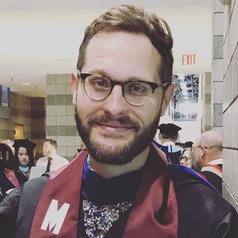
Daniel G. Krutka
Associate Professor of Social Studies Education, University of North Texas
Daniel G. Krutka is a former high school social studies teacher who is now Associate Professor of Social Studies Education and Chair of the Department of Teacher Education & Administration at the University of North Texas. He researches intersections of technology, democracy, and social studies education. He has over 75 publications in prestigious journals such as Teachers College Record, Computers & Education, and Theory & Research in Social Education. He is co-editor for the Contemporary Issues in Technology and Teacher Education (CITE)—Social Studies journal, hosts the Visions of Education podcast, and is founder of the Civics of Technology project (https://www.civicsoftechnology.org/). In his teaching, he critically inquires alongside students for just, multiracial, and technoethical democracy.
Less ![]()
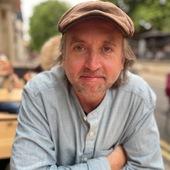
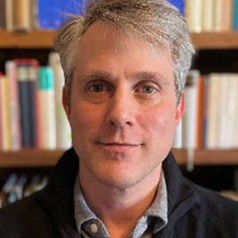
Daniel H. Magilow
Professor of German, University of Tennessee
Daniel H. Magilow is Lindsay Young Professor of German as well as an affiliated faculty member with the Fern and Manfred Steinfeld Program in Jewish Studies, the Cinema Studies Program, and the Department of History. He earned his BA in Comparative Literature from Columbia University and his MA and PhD in German from Princeton University. With Helene Sinnreich, Dr. Magilow serves Co-Editor-in-Chief of Holocaust and Genocide Studies. He serves on the Academic Council of the Holocaust Educational Foundation of Northwestern University and the Academic Committee of the United States Holocaust Memorial Museum, where he was the Pearl Resnick Postdoctoral Fellow in 2005-2006.
Less ![]()
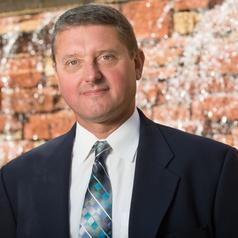
Daniel H. Robinson
Associate Dean of Research, College of Education, University of Texas at Arlington
Daniel H. Robinson is Associate Dean of Research and the K-16 Mind, Brain, and Education Endowed Chair in the College of Education at the University of Texas at Arlington. Dr. Robinson has served as editor of Educational Psychology Review (2006-2015), as associate editor of the Journal of Educational Psychology (2014-2020), as an editorial board member of nine journals, and currently as editor of Monographs in the Psychology of Education: Child Behavior, Cognition, Development, and Learning, Springer Publishing. Dr. Robinson was a Fulbright Specialist Scholar at Victoria University, Wellington, New Zealand.
Less ![]()
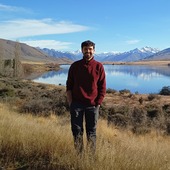
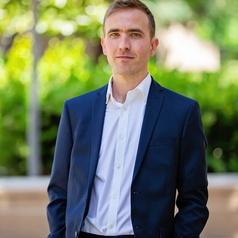
Daniel Hutton Ferris
Lecturer in Political Theory and Philosophy, Newcastle University
I'm a political theorist at Newcastle University. Last year I was a postdoctoral researcher at Stanford's Center for Ethics and before that I studied in Oxford, Toronto, and Frankfurt.
My main research interest is in democratic theory; I interpret and evaluate novel forms of representation and participation. I also work on the history of political thought and comparative political theory.
Less ![]()
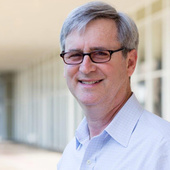
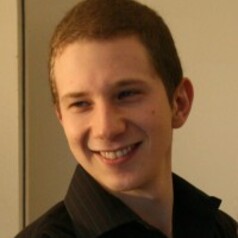
Daniel J. Lawson
Associate Professor in Data Science, University of Bristol
I am a statistician with extensive experience in Data Science and Bayesian methods. I have made contributions to applied research spanning Genetics, Population Health, Cyber Security, Digital Health Records, and more. I work on the boundary of statistical and machine learning methodology and application to real-world data science problems.
I have received a Sir Henry Dale Wellcome Trust and Royal Society Research fellowship and have led the development of a "Data Science Toolbox" Masters course. I am co-director of COMPASS - the EPSRC Computational Statistics and Data Science at the University of Bristol, hosted by the Institute of Statistical Sciences.
Less ![]()
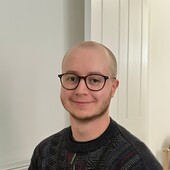
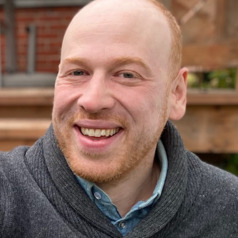
Daniel L. Douek
Faculty Lecturer, International Relations, McGill University
My research specialization focuses on political violence in southern Africa. My teaching focuses on Africa and the Middle East.
Less ![]()
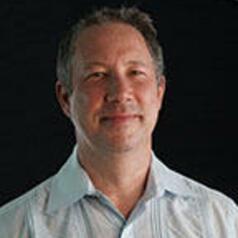
Daniel Martinez HoSang
Professor of Ethnicity, Race & Migration, Yale Divinity School
Daniel Martinez HoSang is a Professor of Ethnicity Race and Migration and American Studies and holds a secondary appointment in the Department of Political Science and serves on the Education Studies Advisory Committee.
His most recent book is A Wider Type of Freedom: How Struggles for Racial Justice Liberate Everyone (University of California Press, 2021).
HoSang is the co-author (with Joseph Lowndes) of Producers, Parasites, Patriots: Race and the New Right-Wing Politics of Precarity (University of Minnesota Press, 2019) and the author of the author of Racial Propositions: Ballot Initiatives and the Making of Postwar California (University of California Press, 2010) which was awarded the 2011 James A Rawley Prize from the Organization of American Historians.
He is the co-editor of three volumes: Seeing Race Again: Countering Colorblindness Across the Disciplines (with Kimberle Crenshaw, Luke Harris and George Lipsitz) University of California Press, 2019; Relational Formations of Race: Theory, Method and Practice (co-edited with Ramon Gutiérrez and Natalia Molina), University of California Press, 2019; and Racial Formation in the 21st Century (with Oneka LaBennett and Laura Pulido) University of California Press, 2012).
Less ![]()
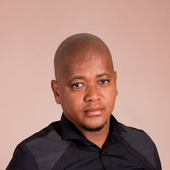
Daniel Nkosinathi Mlambo
Lecturer of Public Administration and Policy, Tshwane University of Technology
Less ![]()
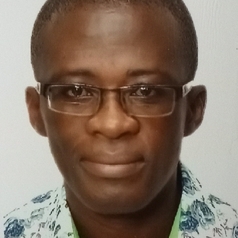
Daniel Oladimeji Oluwayelu
Professor of Veterinary Microbiology, University of Ibadan
Professor Daniel Oladimeji Oluwayelu is a veterinarian with MSc (veterinary microbiology) and PhD degrees from the University of Ibadan. He was appointed a lecturer II in the Department of Veterinary Microbiology and Parasitology, University of Ibadan in July 1995 and became a professor in October 2016.
A seasoned academic with 25 years of teaching experience at the university level, Professor Oluwayelu has published extensively in the different fields of veterinary microbiology including virology, bacteriology and mycology. He has over 100 scientific publications comprising articles in peer-reviewed, high-impact journals, technical reports and conference papers to his credit.
Professor Oluwayelu’s current research interests are viral diseases of livestock, companion animals and wildlife as well as arboviruses, emerging viruses and viral zoonoses at the human-animal-environment interface. He employs both classical virology and genomics techniques for the surveillance and diagnosis of these diseases. He is a member of several learned societies including the Nigerian Veterinary Medical Association, International Society for Infectious Diseases, American Society for Microbiology and American Society for Virology. He is also a Fellow of the College of Veterinary Surgeons, Nigeria (FCVSN).
Less ![]()
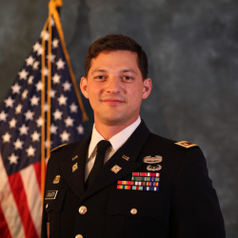
Daniel P. Colletti
Instructor of American Politics, United States Military Academy West Point
Major Daniel P. Colletti is an Instructor of American Politics in the Department of Social Sciences at the United States Military Academy at West Point, NY. His research interests include National Security Policy, Education Policy, Housing Policy, and Real Estate Investing.
Daniel commissioned as a Quartermaster Officer in 2012 from Florida State University where he earned a bachelor’s in science in economics and philosophy. Daniel has served in multiple tactical brigades including the 3rd Infantry Brigade Combat Team (3/1 IBCT), 1st Infantry Division and the 2nd Cavalry Regiment in Germany. In the former, he served a nine-month deployment to Afghanistan as an Operations officer and platoon leader. He has also served in various positions including company commander, battalion chief of operations, and battalion chief of logistics. Daniel graduated from Columbia University’s School of International and Public Affairs a master’s in public administration, concentrating in international security policy, with regional specializations on the United States and on Russia and the former Soviet Union.
Less ![]()
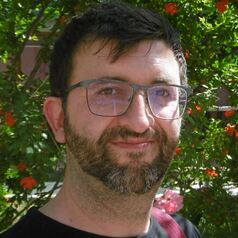
Daniel Paül Agustí
Profesor de Geografía, Universitat de Lleida
Daniel Paül es doctor en Geografía y profesor agregado del grado de Turismo de la Universitat de Lleida. Coordinador del Máster en gestión de áreas de montaña. Sus principales líneas de investigación se centran en aspectos relacionados con la gestión de la imagen de la ciudad, especialmente en dos ámbitos: (1) la imagen proyectada por turistas en las redes sociales y (2) la imagen percibida por los ciudadanos en su vida cuotidiana. Ha publicado varios artículos y capítulos de libro sobre esta temática. Igualmente, es investigador principal del grupo de investigación consolidado “Territori i Societat” de la Generalitat de Catalunya (2021 SGR 01369).
Less ![]()
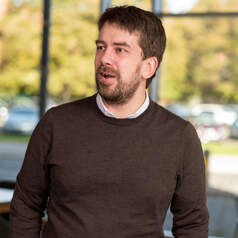
Daniel Robert King
Teaching Fellow in American Literature, University of Leicester
My PhD is in American literature, specifically the work and career of contemporary author Cormac McCarthy. Since completing my PhD, I have written on Marilynne Robinson, Jaime Hernandez, and Emily St John Mandel.
My current research focus is on literary editing, publishing, and awards culture in the twentieth century through a case study of the work and career of Random House author Albert Erskine. My most recent article examines Erskine's work with Ralph Ellison on Invisible Man, and future articles will draw on archival material to explore Erskine's work with Malcolm Lowry, William Faulkner, Eudora Welty, and Cormac McCarthy.
Less ![]()
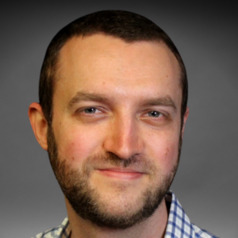
Daniel S. Schiff
Assistant Professor of Political Science, Purdue University
Dr. Schiff is an Assistant Professor of Technology Policy at Purdue University’s Department of Political Science and the Co-Director of GRAIL, the Governance and Responsible AI Lab.
As a policy scientist with a background in philosophy, he studies the formal and informal governance of AI through policy and industry, as well as AI's social and ethical implications in domains like education, manufacturing, finance, and criminal justice. His interdisciplinary and mixed methods research addresses topics such as industry standards and organizational practices for AI ethics, public and elite opinion and influence dynamics in the policy process, the development of social responsibility attitudes amongst future computing and engineering professionals, and the role of the public in governing emerging technologies.
At GRAIL, he focuses on fostering interdisciplinary research collaborations to study AI's social, policy, and ethical implications using diverse theoretical approaches and rigorous methods. He works with many passionate and talented graduate and undergraduate students, academics, and practitioners.
His work also includes the development of interdisciplinary coursework focused on technology, policy, and ethics, and he maintains a key interest in engaging with members of the public, stakeholders in civil society and industry, and policymakers to share best practices, learn from others, and have applied impact that can benefit society. He aims to make his research accessible and relevant.
For example, Dr. Schiff served as the founding Responsible AI Lead at JP Morgan Chase & Co., the most Globally Systematic Important Bank (GSIB). He also served as Secretary of the IEEE 7010-2020 standard, the first AI ethics industry standard, focused on the impacts of AI on human well-being, and remains engaged in international, national, and subnational AI policy efforts. Before then, he worked for several years in the non-profit K-12 education sector as the Director of Research, Evaluation, and Planning at the Philadelphia Education Fund.
Dr. Schiff studied Philosophy at Princeton University, focusing on robotics and intelligent systems, before completing a Master’s in Social Policy at the University of Pennsylvania and PhD in Public Policy from the Georgia Institute of Technology.
You can see his work in venues across various disciplines, including Policy Studies Journal, Science and Public Policy, Public Administration, Technology in Society, Review of Policy Research, AI & Society, the International Journal of AI in Education, IEEE Transactions on Technology & Society, the Journal of Engineering Education, the AMA Journal of Medical Ethics, and Nanotechnology, and you can reach him at dschiff "at" purdue "dot" edu or at @dan_schiff.
Less ![]()
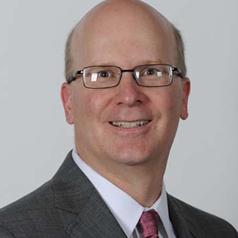
Daniel Speed Thompson
Associate Professor of Religious Studies, University of Dayton
After studies in Theology and Philosophy at Notre Dame, I completed Master’s and Doctoral degrees at the University of Chicago’s Divinity School under the tutelage of Anne Carr, David Tracy and Robert Schreiter (from the Catholic Theological Union). I have written on Edward Schillebeeckx’s theology and am now pursuing projects on the theology of history and theological reflections on Catholic higher education. I have served as a department chair (or associate chair) for 13 years at different institutions.
Less ![]()
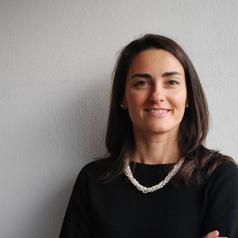
Daniela Bolzani
Senior Assistant Professor, Università di Bologna
Daniela Bolzani is Senior Assistant Professor in management at the University of Bologna. She received her Ph.D. in General Management in 2013 working on her dissertation “Internationalization intentions: Micro-foundations and psychological distance perceptions in immigrant and non-immigrant entrepreneurs”. Between 2013 and 2017 she worked as a post-doctoral fellow at the Department of Management and at the Department of Education Studies of the University of Bologna, as a research team member in European projects in the domain of entrepreneurship and technology transfer. She has been a visiting scholar at the Leeds School of Business, University of Colorado at Boulder – USA (2013) (invited by Prof. M.D. Foo) and at HEC Paris – France (2016) (invited by Prof. T. Åstebro).
Before starting her Ph.D., Daniela worked as a professional for around five years in the fields of financial audit and international development in Europe and Africa.
Less ![]()
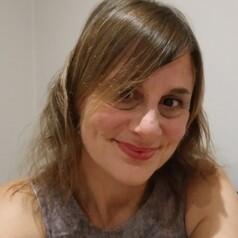
Daniela Carta
Lecturer in Physical Chemistry, University of Surrey
Dr. Daniela Carta received her degree in Chemistry from University of Cagliari, Italy and her PhD in Chemistry from the University of Kent, Canterbury, UK working on sol-gel materials for biomedical applications. She has worked as a Postdoctoral Researcher at the Department of Chemistry, University of Cagliari, Italy on sol-gel synthesis and characterization of metals/alloys and functional oxide nanoparticles dispersed in highly porous matrices and as a Research Fellow at the NanoGroup at the Nanofabrication Centre, University of Southampton, UK, working on nanodevices for memory applications based on thin film oxides.
In November 2016 she was appointed as a Lecturer in Physical Chemistry in the Department of Chemistry at the University of Surrey, Guildford, UK. Her current research is focussed on fabrication of phosphate-based glasses and gels for tissue engineering using in-solution techniques (coacervation and sol-gel) for bone regeneration and wound healing. Dr Carta has received funds from EPSRC, UKRI, MRC and Royal Society of Chemistry.
Less ![]()
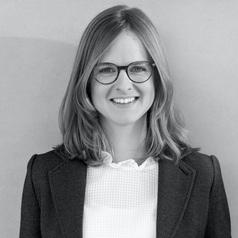
Daniela Mahl
PhD student at the Department of Communication and Media Research (IKMZ), University of Zurich
Daniela Mahl is a PhD student at the Department of Communication and Media Research (IKMZ), University of Zurich, Switzerland.
Her research interests include conspiracy theories and misinformation in digital platform environments, science communication, and computational social science (CSS) methods.
Less ![]()
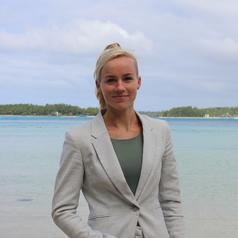
Daniela Marggraff
Researcher, Oceans Regions Programme, University of Pretoria
Daniela Marggraff is a researcher at the Ocean Regions Programme, Department of Political Sciences, University of Pretoria. She is also an assistant lecturer, foreign policy analysis and diplomacy, for second-year students at the University of Pretoria.
As a PhD student, Daniela's research focuses on the foreign policy of small island developing states (SIDS) in the context of major power competition in the Indo-Pacific. The research challenges the common perception of SIDS as passive players in global dynamics. Instead, it argues that these nations are critical actors with a distinct form of power. Rather than being constrained by a power deficit, SIDS wield alternative influences that enable them to actively shape their international environment.
Daniela has published a few op-ed/research briefs here (including but not limited to):
https://www.up.ac.za/media/shared/915/breaking-the-surface-exploring-and-illuminating-ocean-regions_5-february-2024.zp252650.pdf
https://www.up.ac.za/media/shared/915/6_op-ed_22-july-2024.zp253692.pdf
https://www.up.ac.za/media/shared/915/unseen-realities-the-states-that-are-missing-from-our-maps_9-may-2024.zp252655.pdf
https://www.up.ac.za/media/shared/915/4_research-brief_21-august-2024.zp254770.pdf
Less ![]()
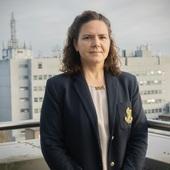
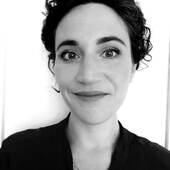
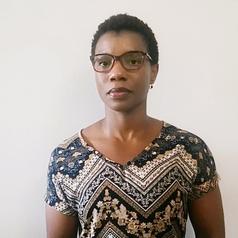
Daniela Salite
Research Fellow in Energy Transition, University of Toronto Scarborough, University of Toronto
Daniela is a Postdoctoral Research Fellow at the Department of Physical and Environmental Sciences – University of Toronto Scarborough, Canada. Daniela has been engaged on her fellowship project titled “Beyond technological fixes - Fostering justice and equity in the transition to sustainable heating technologies in Canada (FITTING)”. The research critically analyses how governance and politics affect a socially just, inclusive, and equitable access to sustainable and affordable heating technologies in Canada. Daniela has a PhD in Livelihood (international and rural development), and apart from conducting research in energy sector, she has also research interest in issues concerning rural and agricultural development, food security and nutrition, adaptation to environmental and climate change, political economy of service provision, and sustainable, just, and equitable development.
Less ![]()
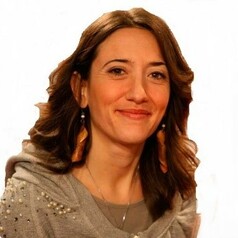
Daniela Scaccabarozzi
Uppsala University
Daniela Scaccabarozzi is a Post-Doctoral Research Fellow at Uppsala University (Sweden) and Adjunct Researcher at Curtin University (Australia). Her research spans from pollination biology of plants, focusing on orchids and native crops (i.e., Cacao and Vanilla), to bee biology. Daniela got a dual Ph.D. at Curtin University and University of Naples Federico II, funded by a strategic international scholarship. During her research journey, Daniela got prestigious awards including the post-doctoral Talent-Introduction Program by the Chinese Government and the Endeavour Fellowship by the Australian government.
Less ![]()
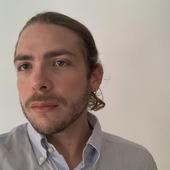
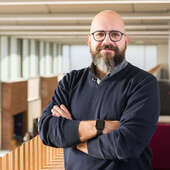
Daniele Magistro
Associate Professor in Physical Activity and Health, Department of Sport Science, Nottingham Trent University
Less ![]()
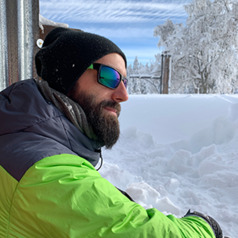
Daniele Silvestro
Assistant Professor, Department of Biology, University of Fribourg
Daniele Silvestro is a computational biologist with expertise in evolutionary and conservation biology. He leads a research team at the University of Fribourg, Switzerland that develops computational methods and software to study evolutionary processes across different organisms including plants, vertebrates, and invertebrate groups.
They also cover new methods and software to predict extinction risk in modern species, to model the dynamics of the ongoing biodiversity crisis, and to optimise conservation efforts using artificial intelligence.
Less ![]()
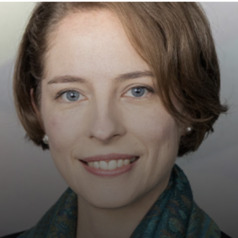
Daniella Susic
Clinical Academic Obstetrician, UNSW Sydney
Dr Dani Susic is a Clinical Academic in obstetrics at Liverpool Hospital. She is also a Senior Lecturer with an education focus at UNSW Sydney teaching and developing the Women’s Health Curriculum across both the undergraduate and post graduate programs. Dani has undertaken speciality training through the Royal Australian and New Zealand College of Obstetricians and Gynaecologists (RANZCOG) and ran the Microbiome Understanding in Maternity Study (MUMS) trying to establish if there are causal links or associations between the action and composition of microbiome during pregnancy and adverse pregnancy outcomes as the subject of her PhD. She practices with the principles of shared decision making and trauma informed care for all the women she cares for, and instills this in the students and junior doctors that she mentors.
Less ![]()
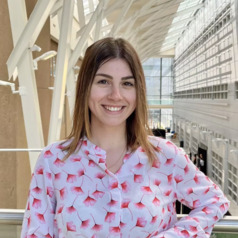
Daniella Vellone
Medical Science and Imaging PhD Candidate, University of Calgary
I am a PhD Medical Science and Imaging student with a significant interest in dementia prevention, prediction, and progression. The objective of my research is to develop a deeper understanding of mild behavioural impairment-apathy in dementia-free older adults by implementing a research framework that focuses on epidemiological and pathological biomarker differences among those with and without apathy, which may explain disparate Alzheimer Disease (AD) outcomes and ultimately reduce symptom burden. Identifying those with apathy prior to AD onset may provide an earlier opportunity for intervention and improve patient outcomes. Both my research and clinically relevant experience have allowed me to gain an appreciation for the mutually beneficial relationship that each contributes to theory and practical work.
Less ![]()
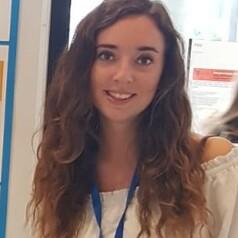
Daniella Watson
Postdoctoral Researcher and Health Psychologist, King's College London
Daniella is a Post-Doctoral Researcher and Health Psychologist at King's College London and the University of the Witwatersrand, South Africa.
Less ![]()
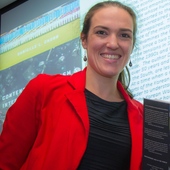
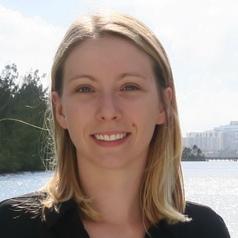
Danielle DeLeo
Postdoctoral Associate in Biological Sciences, Florida International University
I am a Postdoctoral Researcher at Florida International University and a Research Associate at the Smithsonian's National Museum of Natural History, using genomic techniques to study the evolution of bioluminescence and vision in the deep sea. My additional projects harness the power of genomics to better understand how marine invertebrates respond and adapt to both natural and anthropogenic environmental conditions.
My previous research integrated field and molecular work, genomic and bioinformatic tools to study population connectivity and adaptations of deep-sea chemosynthetic mussels residing near cold seeps, and the evolution of vision and extraocular light detection in bioluminescent crustaceans.
Prior to this work, I received my PhD in Biology from Temple University (Philadelphia, PA) in 2016. My dissertation research was focused on using experimental and genomic tools to study anthropogenic impacts to deep-sea coral communities with particular emphasis on the effects imposed by the 2010 Deep-water Horizon oil spill disaster in the Gulf of Mexico.
Less ![]()
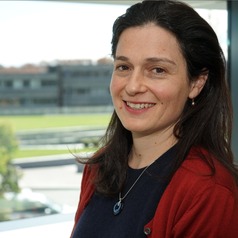
Danielle Einstein
Adjunct Fellow, School of Psychological Sciences, Macquarie University
B Sc (Psychology) (Hons), 1994
M Psychol (Clinical), 1996
Phd 2005
Over the past 28 years, Dr Danielle Einstein has supervised, taught and investigated the optimal delivery of cognitive behaviour treatment in university, hospital and private settings, including running treatment trials at Westmead Hospital. She has worked with adolescents, developing an internet program for adolescents suffering with comorbid anxiety and depression together with Dr Carolyn Schniering and Professor Ron Rapee (funded by Australian Rotary Health) and writing three face to face programs for use in secondary schools. These form part of large research trials run at Macquarie University. Danielle's interest in the effects of uncertainty commenced with her work into treatment of magical and superstitious thinking associated with OCD. Danielle's latest published research articles explain the connection between social media use and anxiety. Her interest lies in developing treatments to alter fear of uncertainty based on ACT and CBT.
Less ![]()
- Market Data





















